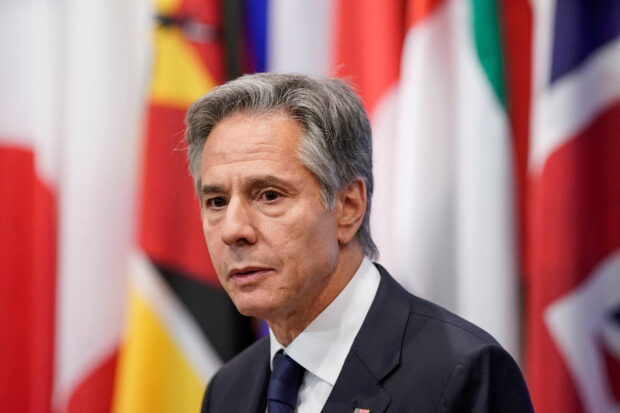US pauses some foreign assistance programs for Niger governmen

FILE PHOTO: US Secretary of State Antony Blinken gives his remarks to the media after attending the United Nations Security Council meeting on famine and conflict-induced global food insecurity in New York, United States, August 3, 2023. REUTERS/Eduardo Munoz/File Photo
WASHINGTON — The United States is pausing certain foreign assistance programs that benefit the government of Niger but will continue giving humanitarian and food assistance, US Secretary of State Antony Blinken said on Friday.
A military junta overthrew Niger’s democratically elected President Mohamed Bazoum and his government on July 26, the seventh military takeover in less than three years in West and Central Africa.
“As we have made clear since the outset of this situation, the provision of US assistance to the government of Niger depends on democratic governance and respect for constitutional order,” Blinken said in a statement on Friday.
READ: Mutinous soldiers in Niger sever French military ties while ‘hostage’ president pleads for US help
West African defense chiefs have drawn up a plan for military action if Niger’s coup is not overturned by Sunday.
Article continues after this advertisement“We remain committed to supporting the people of Niger to help them preserve their hard-earned democracy and we reiterate our call for the immediate restoration of Niger’s democratically elected government,” Blinken said.
Article continues after this advertisementBazoum’s ouster threatens US strategic priorities in the region.
READ: Some of Niger’s neighbors defend the coup there, even hinting at war. It’s a warning for Africa
The African nation is a key partner for Washington’s fight against Islamist insurgents who have killed thousands of people and displaced millions more. US military personnel have been training local forces to fight militant groups.
The administration of President Joe Biden has also held up Niger as a democratic success story in a region that has faced a series of coups or attempted power grabs over the past three years.
The US Embassy in Niamey in 2021 said the Pentagon and State Department had provided Niger more than $500 million in equipment and training since 2012.
READ: Niger will face sanctions as democracy falls apart, adding woes to more than 25 million people